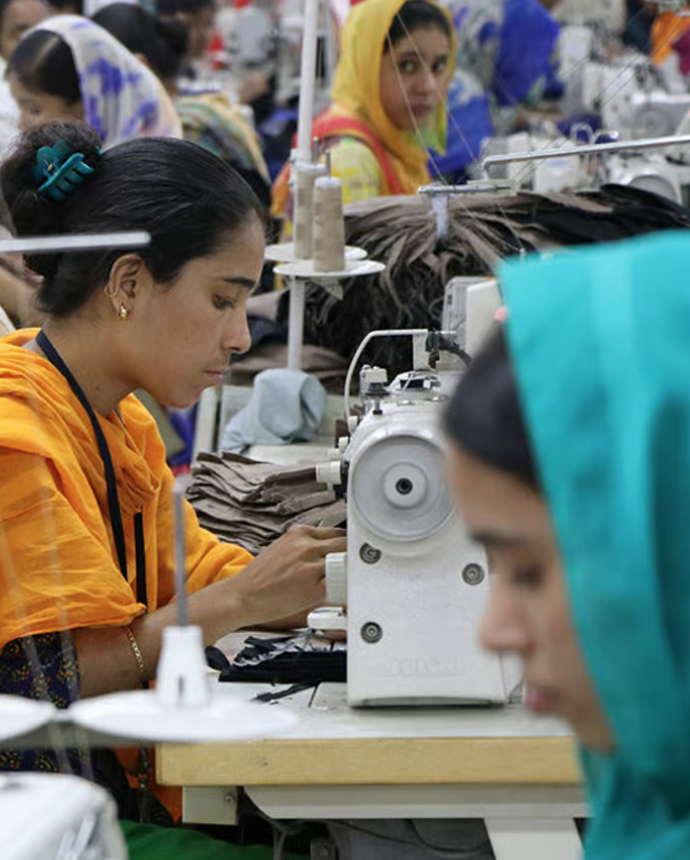
Fashion United contacted the Clean Clothes Campaign (CCC) to find out more about the situation of workers in Bangladesh. “It’s not entirely clear at the moment, but union leaders in Bangladesh estimate that around 3,000 to 4,000 workers have been made redundant so far. In addition, 131 workers are still trapped in prison”, says a CCC spokesperson.
A number of sources, including Reuters, have reported major political unrest in Bangladesh in recent months, citing “authoritarian repression” in the South Asian country. Local police have responded with violence and intimidation to protests by textile workers for higher wages. According to Reuters, at least four people were killed during the protests. Despite this, workers continue to protest.
Bangladeshi garment workers demand higher minimum wage
Although the textile industry is one of the largest in the world, workers in this sector were paid some of the lowest wages in the world. Textile workers in Bangladesh are demanding a higher minimum wage. In November 23023, the Bangladeshi government increased the monthly wage by 30 euros, from 8,300 taka (70 euros) to 12,500 taka (100 euros). The Clean Clothes Campaign describes this sum as scandalous. A decent wage is at least 23,000 taka (195 euros) a month, according to research by the Dutch organisation. This is the amount demanded by workers and three local unions: the Bangladesh Garment and Industrial Workers’ Federation, the National Garment Workers’ Federation and the Bangladesh Garment Workers’ Unity Council.
For several months, the Clean Clothes Campaign (CCC) has been calling on retailers producing in Bangladesh to support the demand for higher wages. In response, brands such as Asos, Primark and H&M said in September 2023 that they recognised their role in “supporting the development of wages.” Words that mean little, according to Bangladesh’s trade unions. They argue that Western companies producing in Bangladesh should redouble their efforts to pay their suppliers more.
Workers in Bangladesh continue to demonstrate in favour of a renegotiation of minimum wages, particularly in textiles, the country’s main source of income. According to the media outlet FashionNetwork, police officers and the army are being deployed throughout the country to prevent possible violence.
Bangladesh is the world’s second largest clothing producer after China. The garment industry employs more than 4.4 million workers, 70% of whom are women. The ready-to-wear sector accounts for more than 80% of the country’s total export earnings and contributes more than 11% of the national GDP.
Read more – Fashion United
